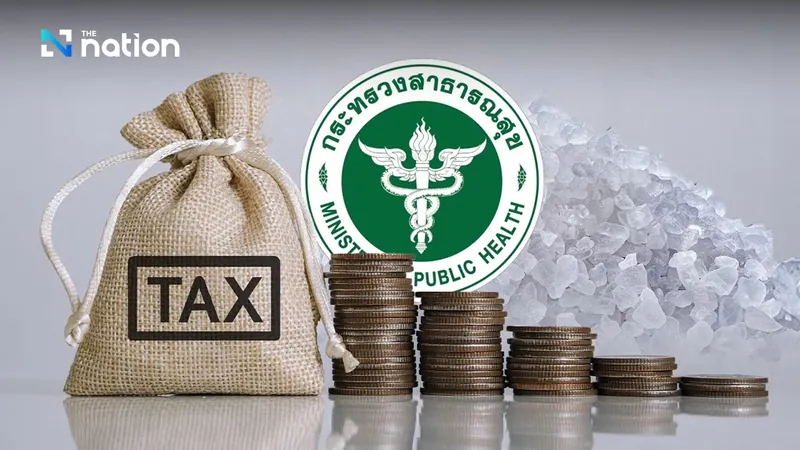
Could a Salt Tax Revolutionize Thailand's Health?
2024-12-17
Author: Nur
Introduction
In a bold move to combat the growing crisis of non-communicable diseases (NCDs) in Thailand, Public Health Minister Somsak Thepsuthin has announced the potential implementation of a salt tax. This declaration came during a recent meeting of a national policy committee dedicated to lowering salt and sodium consumption across the country.
The Sodium Crisis in Thailand
The minister expressed alarm over the alarming sodium consumption rates among Thais, highlighting a 2009 survey which revealed that individuals consumed an average of 4,351.69 milligrams of sodium daily—over double the World Health Organization's recommended limit of 2,000 milligrams. This excessive intake has been linked to a surge in health issues, with over 22 million Thais suffering from diseases such as hypertension, kidney problems, heart conditions, and cerebrovascular diseases stemming from high sodium consumption.
Public Health Ministry's Strategy
To address this public health challenge, the Public Health Ministry is rolling out a comprehensive strategy aimed at reducing salt and sodium consumption by an ambitious 30%. Key initiatives include providing salt meters to village health volunteers to raise awareness, establishing strict guidelines for sodium content in ready-to-eat meals, and introducing financial incentives like a sodium tax.
Addressing Skepticism Regarding the Salt Tax
Somsak acknowledged the skepticism surrounding the efficacy of a salt tax. To address this, a joint committee with the Excise Department has been formed to establish the tax criteria. While the projected annual revenue from such a tax may not be substantial, the ministry believes it could significantly alleviate healthcare costs by preventing diet-related illnesses.
Financial Implications and National Health Security
The move is essential, considering that treatment for NCDs accounts for a staggering 52% of the National Health Security Fund's budget. The government's commitment to tackling these health issues not only aims to improve the quality of life for millions of Thais but also seeks to create a healthier future for generations to come.
Conclusion
As Thailand stands at the crossroads of public health reform, the introduction of a salt tax could mark a transformative leap forward in the fight against NCDs. Is this the breakthrough needed to shift the dietary habits of an entire nation? Stay tuned as developments unfold!





 Brasil (PT)
Brasil (PT)
 Canada (EN)
Canada (EN)
 Chile (ES)
Chile (ES)
 España (ES)
España (ES)
 France (FR)
France (FR)
 Hong Kong (EN)
Hong Kong (EN)
 Italia (IT)
Italia (IT)
 日本 (JA)
日本 (JA)
 Magyarország (HU)
Magyarország (HU)
 Norge (NO)
Norge (NO)
 Polska (PL)
Polska (PL)
 Schweiz (DE)
Schweiz (DE)
 Singapore (EN)
Singapore (EN)
 Sverige (SV)
Sverige (SV)
 Suomi (FI)
Suomi (FI)
 Türkiye (TR)
Türkiye (TR)